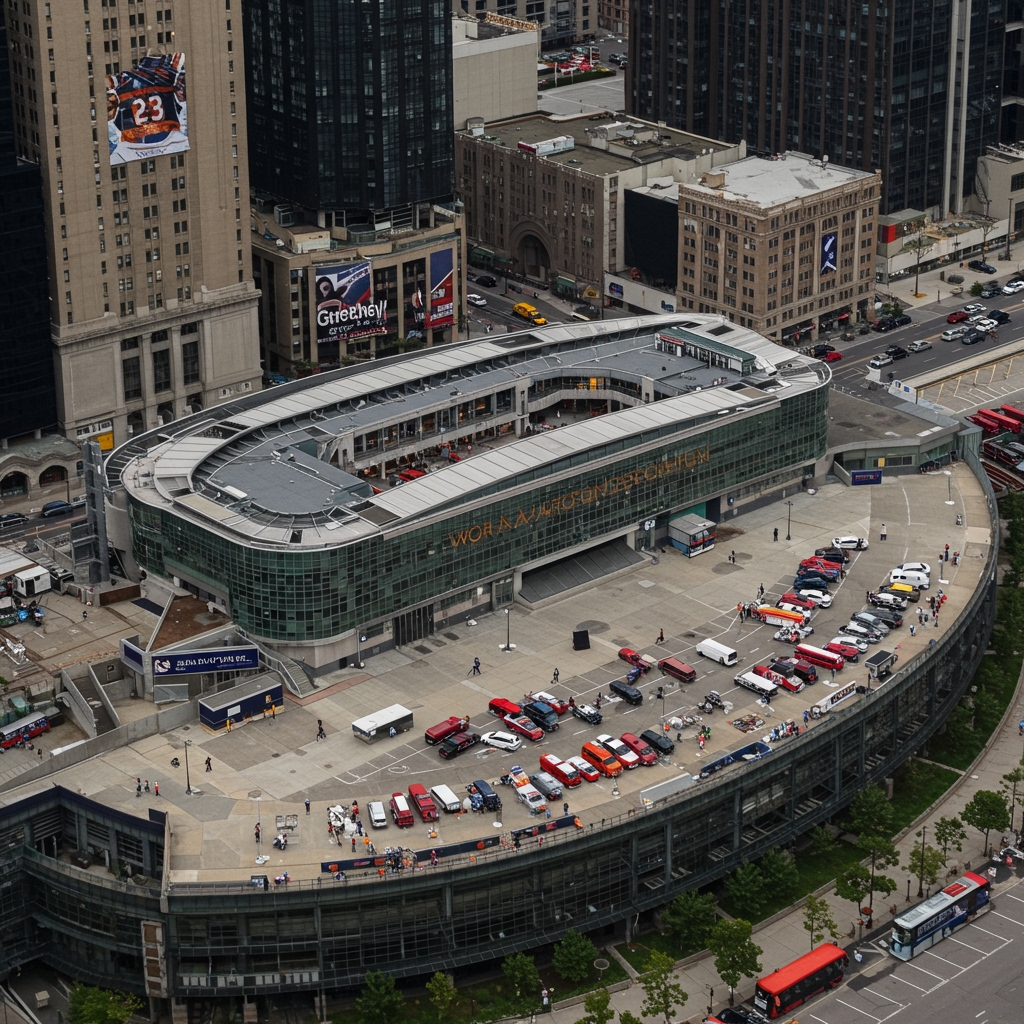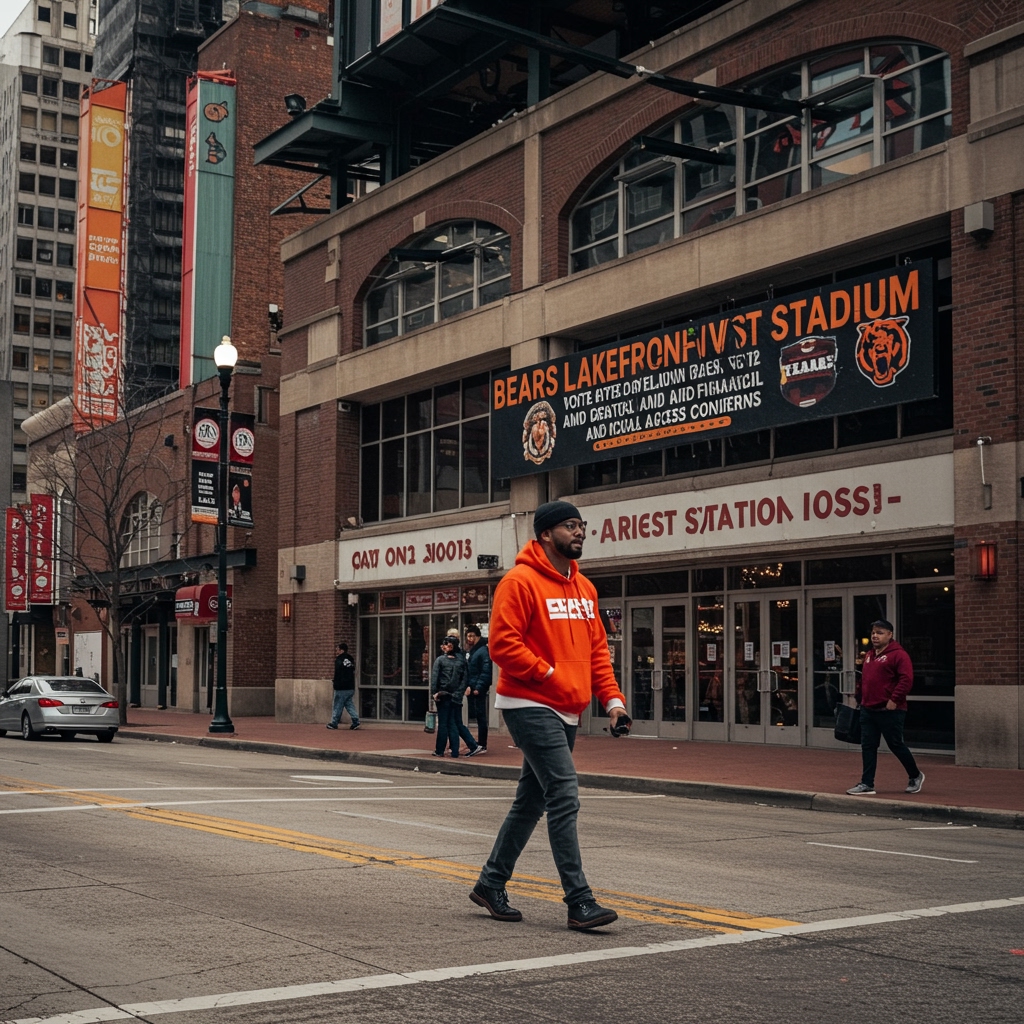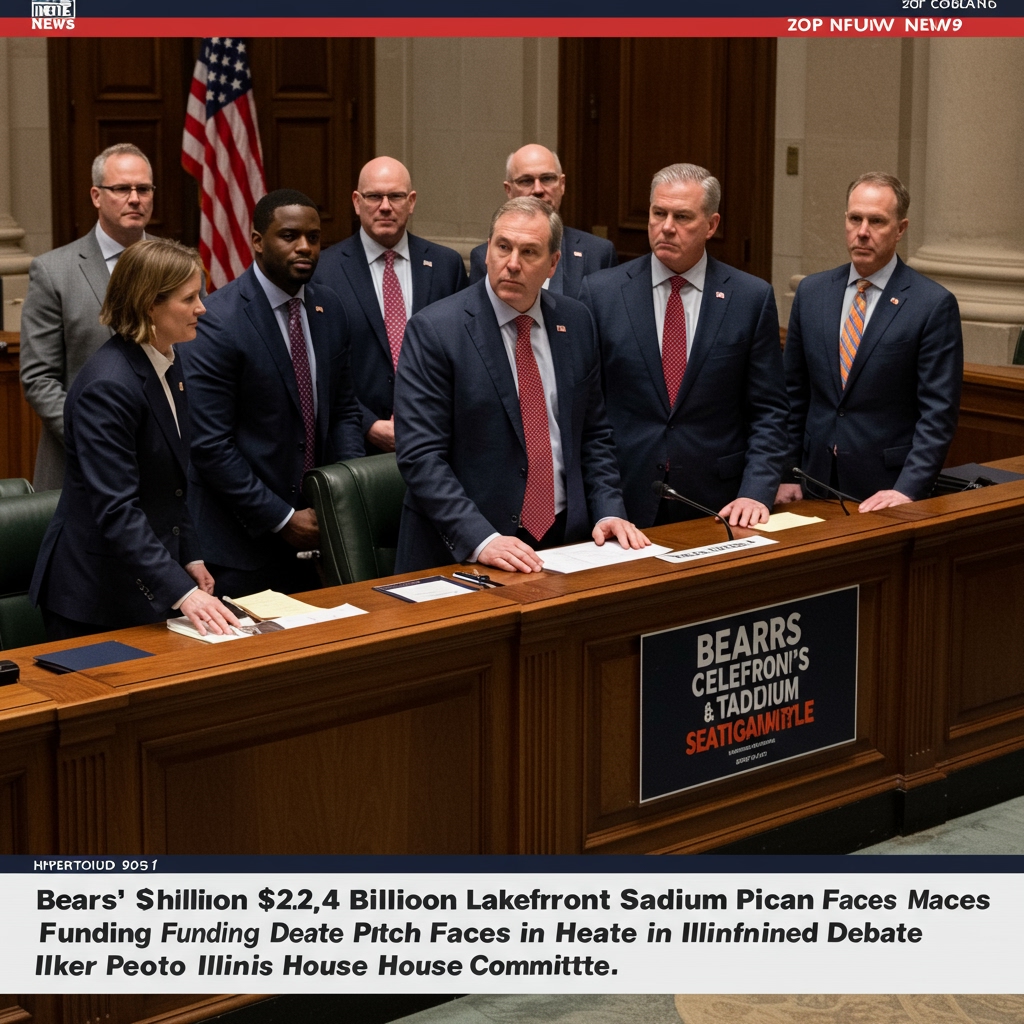CHICAGO – A pivotal vote on the Chicago Bears’ ambitious proposal for a new lakefront stadium faced an unexpected delay today, as the City Council’s Zoning Committee opted to postpone its scheduled consideration of the project. The decision marks a significant pause in the team’s efforts to advance their plan for an estimated $4.7 billion facility adjacent to Soldier Field, a cornerstone of Chicago’s iconic Museum Campus.
Committee members present at the hearing cited outstanding concerns that required further review and discussion before they were prepared to cast their votes. Chief among these issues were questions surrounding the Chicago Bears’ proposed financial contribution to the massive project and the potential impact the development could have on public access and open space along the lakefront and in the immediate vicinity of the Museum Campus institutions.
Project Scope and Financial Implications Under Scrutiny
The Chicago Bears envision building a state-of-the-art, enclosed stadium complex directly east of the existing Soldier Field, which they currently utilize under a lease agreement with the Chicago Park District. The overall development, including infrastructure improvements and potential auxiliary spaces, carries an estimated price tag of $4.7 billion. This substantial figure encompasses the stadium itself, surrounding parkland enhancements, and necessary public infrastructure upgrades.
A central point of contention highlighted by the Zoning Committee members is the allocation of financial responsibility for this multi-billion dollar undertaking. While the Bears ownership has committed to contributing a significant portion of the funds, the team’s proposal reportedly also relies on substantial public investment, potentially sourced from state and local government revenues or bonding. Committee members’ stated concerns about the team’s financial contribution suggest that lawmakers are seeking greater clarity, a larger private investment from the Bears, or a different funding structure to mitigate the burden on taxpayers.
Navigating the financial complexities and securing the necessary funding mechanisms, particularly those involving public money, requires detailed legislative approval and faces considerable public and political debate. The postponement provides additional time for stakeholders – including the team, city officials, and potentially state lawmakers – to address these financial questions and potentially refine the proposed funding model.
Public Access and Lakefront Impact Concerns Persist
Beyond the financial architecture of the project, committee members voiced significant concerns regarding the proposal’s potential effects on public access to the lakefront and the broader Museum Campus area. Chicago’s lakefront has historically been protected as public open space, a principle enshrined in city and state policy for over a century. Any development, especially one of the scale proposed by the Bears, naturally draws scrutiny regarding its adherence to this principle.
The proposed location adjacent to Soldier Field places the new stadium in close proximity to the Field Museum, Shedd Aquarium, and Adler Planetarium – the institutions that comprise the core of the Museum Campus. Concerns raised include the potential for the stadium footprint and related development to restrict public pathways, alter viewsheds, increase congestion, and potentially privatize areas currently accessible to the public. Advocates for public access and environmental groups have been vocal throughout the process, emphasizing the need to preserve and enhance public use of this invaluable civic asset.
The Zoning Committee’s focus on public access underscores the sensitivity surrounding development on or near Chicago’s lakefront. Future discussions and potential revisions to the plan will likely need to demonstrate how the project will protect, and ideally improve, public access, open space, and the natural environment surrounding the new facility.
The Road Ahead Remains Uncertain
The postponement by the City Council Zoning Committee is a critical development in the lengthy and complex process required for a project of this magnitude to gain approval. The Zoning Committee’s vote is a necessary step before the proposal can advance to the full City Council for consideration. Without this initial committee approval, the project’s legislative pathway is effectively halted.
A new date for the Zoning Committee vote has not yet been determined or announced. This lack of a clear timeline adds a layer of uncertainty to the future of the Chicago Bears’ lakefront stadium proposal. The delay could potentially allow for further negotiation and refinement of the plan based on the concerns raised, or it could signal more fundamental challenges in garnering the necessary political support for the project in its current form.
The outcome of future committee deliberations and the eventual decision by the full City Council, coupled with potential involvement from the state legislature regarding public funding mechanisms, will ultimately determine whether the Bears’ vision for a new $4.7 billion stadium on the lakefront becomes a reality or remains a highly debated proposal.














